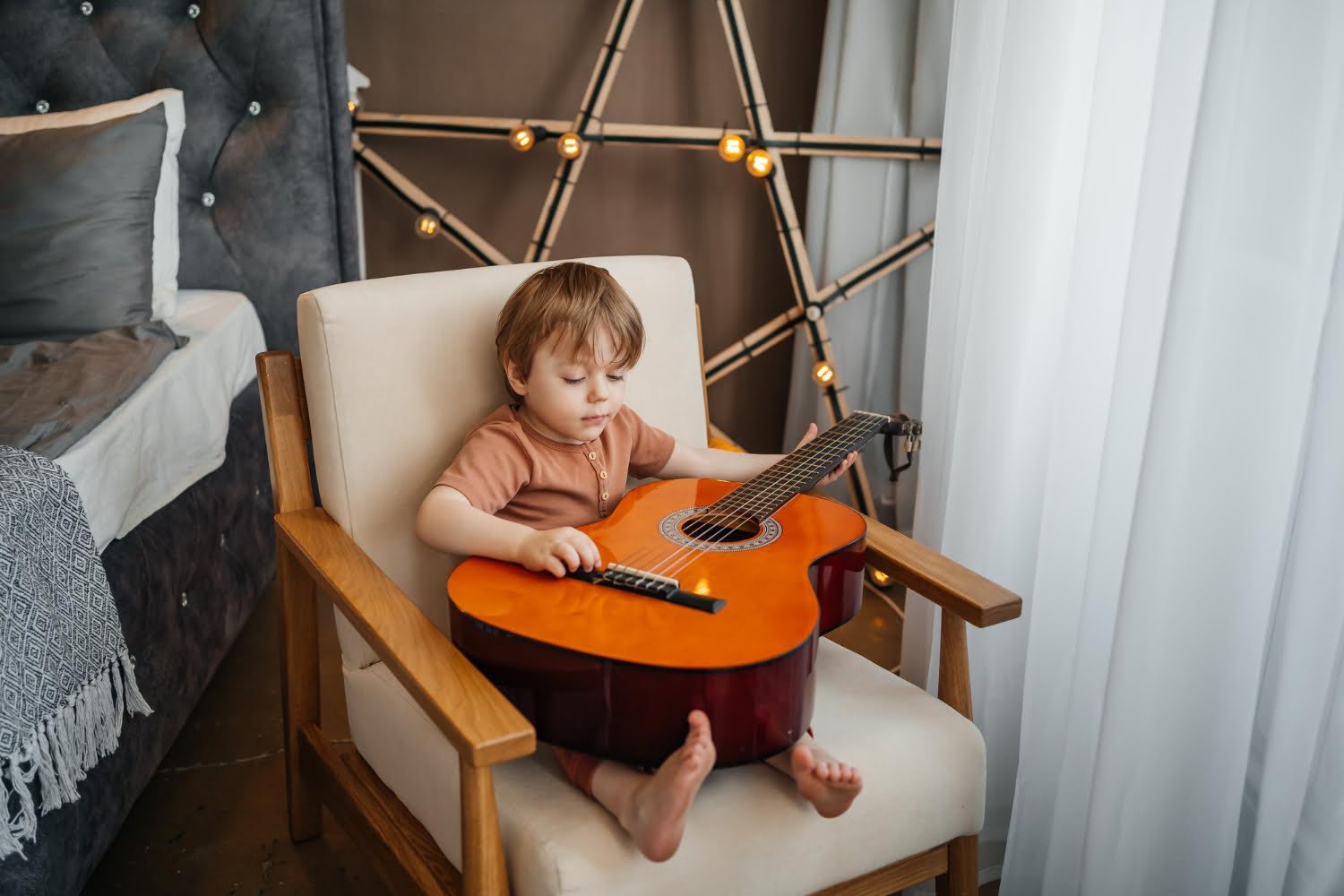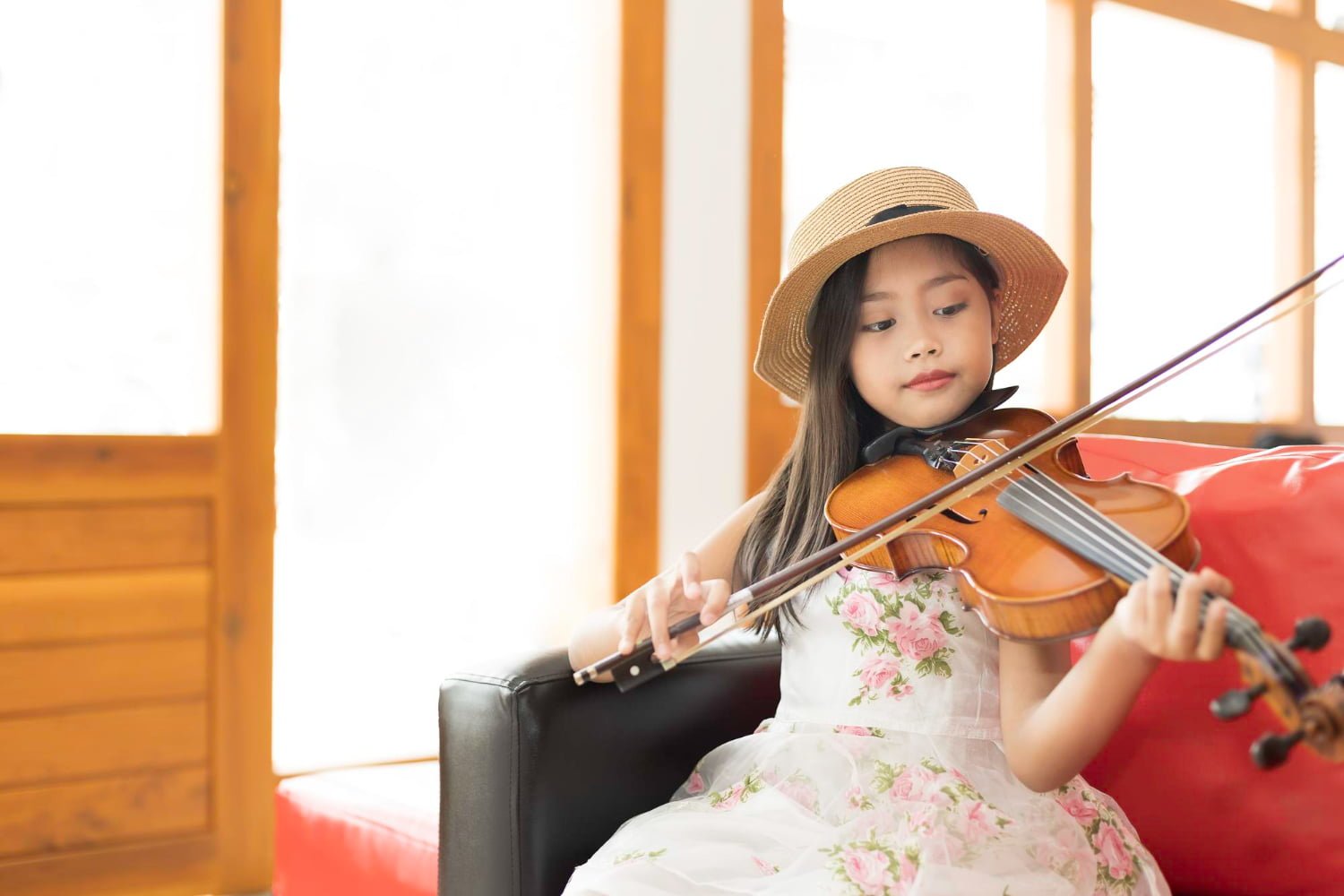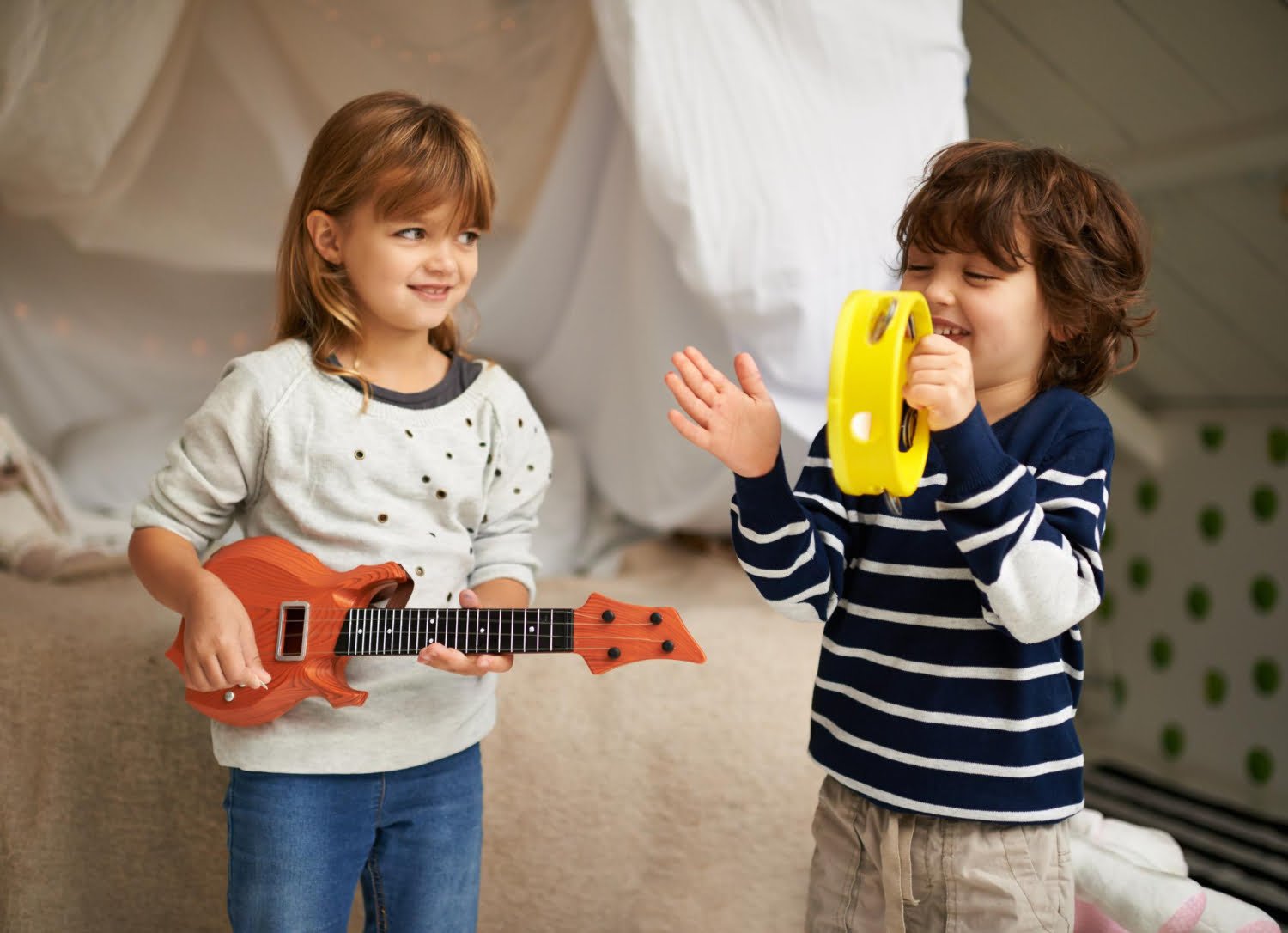How to Choose the Right Musical Instruments for Kids: A Comprehensive Guide
Imagine the sheer delight on your child’s face as they produce their first musical note. It’s a moment of pure magic. Music not only brings joy, but it’s also a powerful tool for your child’s holistic development. The journey of music is a fascinating one, but with a plethora of instruments to choose from, it can seem daunting. Fret not! We’re here to guide you and your budding musician in finding the perfect harmony. Let’s embark on this musical adventure together!
The Wonders of Music for Kids
Music is not just about sounds; it’s a powerful tool that enhances your child’s brainpower. Playing instruments for kids can improve memory and problem-solving skills and even aid in academic subjects like math. But the benefits go beyond academics. Music provides an emotional outlet, allowing children to express feelings they may not have words for yet. It also teaches teamwork, especially in ensemble settings. Encouraging your child’s musicality could be one of the best investments in their future!
What’s the Right Age to Start?
When should your child start learning an instrument? Many parents wonder about this. You can introduce them to basic percussion instruments for kids as early as age three or four. They’re simple and fun! By age six to eight, most kids are ready for more complicated instruments like the piano or violin. Pay attention to your child’s enthusiasm and focus, as these are great indicators of readiness. Remember, every child is different, so let them go at their own pace.

Picking the Instruments for Kids That Fits
- Discovering Your Child’s Musical Loves
Does your child drum on the table, march to the rhythm of their beat, or sing along when a catchy tune comes on? Each child has unique musical preferences. Please spend some time exploring different music styles and instruments to see what excites them. Maybe they’re captivated by the beat of the drums, or perhaps the soothing sounds of a flute call to them. Understanding these preferences is key to finding the right instruments for kids.
- Matching Instruments to Little Hands
The size and shape of instruments for kids can make a big difference. Smaller hands might struggle with a full-sized guitar but could thrive playing a ukulele or violin. If your child is interested in wind instruments, consider their lung capacity and comfort with breathing techniques. Also, think about any braces or dental work that might make brass instruments challenging. Finding the right instrument fit not only prevents frustration but also ensures a fun and rewarding experience, filled with the joy of making music.
- Personality Traits and Instrument Choice
Your child’s personality can guide you to the right instruments for kids. If they love being the center of attention, they might enjoy the boldness of electric guitars or drums. More introverted children might feel at home with the peaceful tones of a piano or cello. Aligning an instrument with their personality ensures that music practice is something they look forward to, not something they dread.

Exploring Instruments for Kids Options
- Classic String Instruments
If your child dreams of playing exciting guitar solos or enchanting violin melodies, string instruments might be their best bet. They can help develop skills and an understanding of harmony. Check out options from brands like First Act Discovery, which offer great starting choices for kids.
- Energetic Percussion Instruments
For the rhythmically inclined child, percussion instruments are perfect. They’re all about timing and beat, providing a fun and energetic way to engage with music. Brands like B. Toys offer vibrant and child-friendly drum options that invite exploration.
- Graceful Wind Instruments
Wind instruments like flutes and clarinets produce beautiful melodies that many kids find fascinating. They’re excellent for teaching breath control and providing health benefits through improved lung capacity.
- Bold Brass Instruments
If your child loves to be heard, brass instruments like trumpets are a wonderful choice. They’re thrilling to play and bring a powerful sound to any group performance.
- Versatile Keyboards
Keyboards and pianos are fantastic for beginners, offering a comprehensive musical foundation. They’re versatile, easy to start with, and allow kids to explore diverse musical styles from classical to pop.
Practical Considerations for the Parents
- Setting a Budget
Musical Instruments for Kids come with a variety of price tags. Set a budget that works for you without sacrificing quality, especially since your child might outgrow their first instrument. Brands like Melissa & Doug and Hape provide affordable, high-quality options that are perfect for young beginners.
- Don’t Forget Maintenance
Factor in the cost of accessories like cases and reeds, as well as regular maintenance such as tuning. These are crucial for keeping the instruments in top shape and ensuring a long-lasting musical journey.
Finding the Right Teacher
- Choosing the Perfect Instructor
A good teacher can really enhance your child’s learning experience. Look for someone who inspires, motivates, and teaches in a way that suits your child’s temperament and needs. Recommendations from other parents or online reviews can help find a good match.
- Online vs. In-Person Lessons
We live in an age where virtual lessons are as effective as in-person ones, offering flexibility and access to a wide range of teachers. Decide on what’s best based on your child’s learning style and your family’s schedule.

Exploring Various Music Genres
Aligning your child’s instrument choice with their favorite music styles can be incredibly motivating. A rock enthusiast might thrive with an electric guitar, while a fan of classical music might excel with a violin or piano. Let them experiment with different instruments so that kids can discover what truly ignites their passion!
Creating a musical home environment can be a source of inspiration and motivation for your child. By integrating music into daily life and providing a dedicated practice space, you can foster a deep appreciation for music in your child.
- Set Up a Practice Space
Create a cozy corner in your home dedicated to music practice. It doesn’t have to be fancy—just a comfortable spot with room to play. Decorate it with music posters or a small shelf for their books to make it inviting.
- Making Music a Part of Daily Life
Ingrain music into everyday activities. Have it playing in the background during meals, or encourage your child to give mini-performances during family gatherings. This not only enhances their love for music but makes it a natural part of life. Consider books like The Story Orchestra: Four Seasons in One Day for interactive musical learning.
As a parent, you play a crucial role in nurturing your child’s musical journey. Your support and encouragement can make a significant difference. By providing a conducive environment for practice and exploration, you can help your child develop a lifelong love for music.
- Encourage Consistent Practice
Practice is key to mastery. Encourage a routine, but keep it light and fun to maintain enthusiasm. Celebrate their achievements, no matter how small, and set realistic goals. Books like Zin! Zin! Zin! A Violin can add an element of fun to the learning process.
- Be Open to Exploration
If your child decides to switch instruments, see it as an opportunity to explore different musical landscapes. This journey of discovery can broaden their musical horizon and give them a richer understanding of music.
- Celebrate Achievements
Celebrate every milestone. Whether it’s their first recital or mastering a specific piece, these moments provide motivation and build their confidence. Inspire them with stories like Ada’s Violin: The Story of the Recycled Orchestra of Paraguay, which showcases the incredible journey of music.

Conclusion
Selecting the right musical instruments for kids is just the beginning of a wonderful journey. It’s about finding a medium for expression and exploration—a path that could lead to lifelong passion. Whether they become professional musicians or keep music as a beloved hobby, the skills and joy they gain will be priceless.
FAQs
What if My Child Wants to Quit?
How Do I Make Practice Fun?
Which Instruments are Easy for Beginners?
How Much Practice is Necessary?
Can Playing an Instrument Help Academically?
Related Post
-
The Absolute Truth: How Many Kids Have Pianos at Home?
-
How to Store Kids Artwork: Cherishing Memories and Encouraging Creativity
-
What to Do on a Rainy Day with Kids? 7 Brilliant Ideas You’ll Wish You Knew Sooner!
-
Unlock Your Child's Potential: The Must-Know Life Skills to Teach Kids!
-
Review of "How to Talk So Kids Will Listen" by Adele Faber and Elaine Mazlish





































































